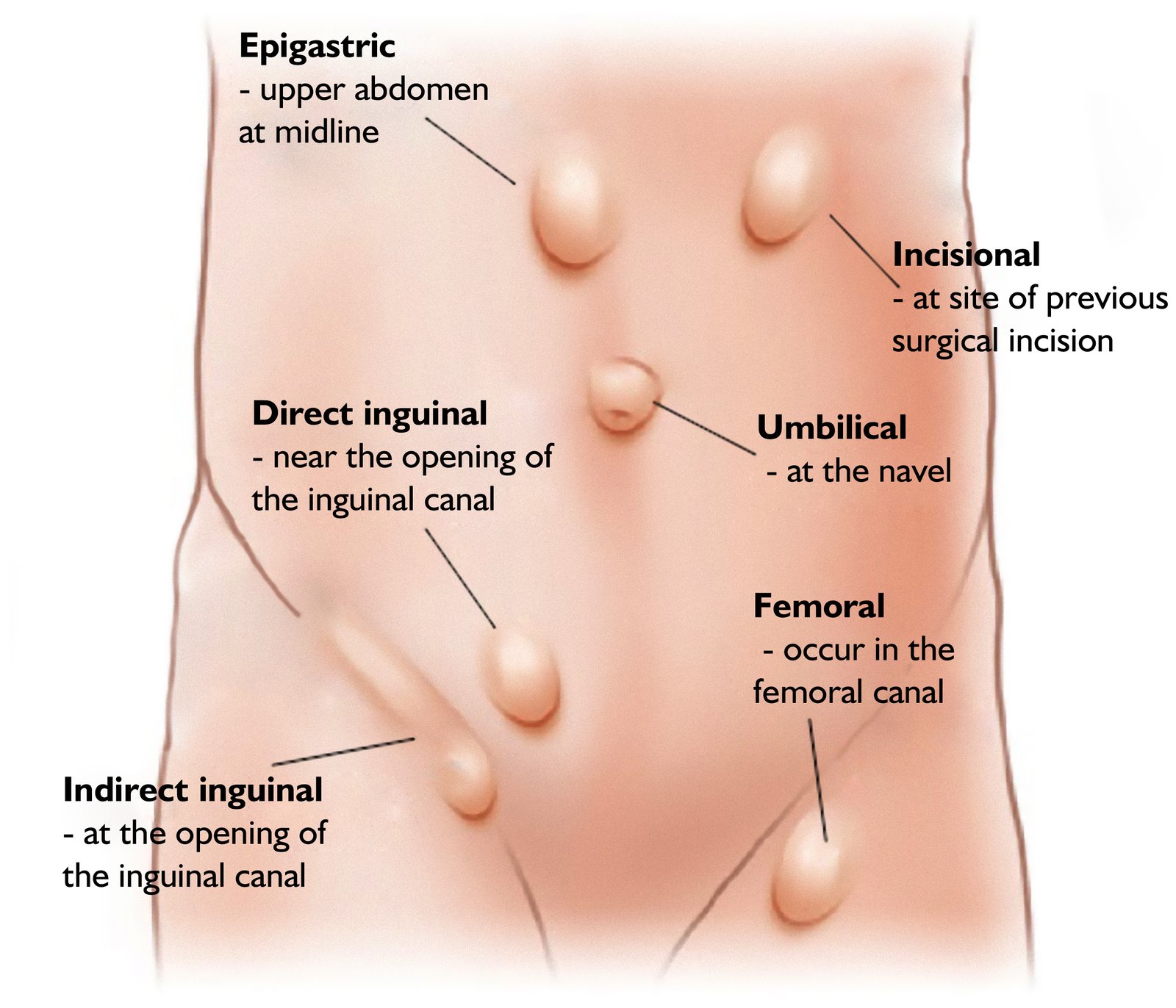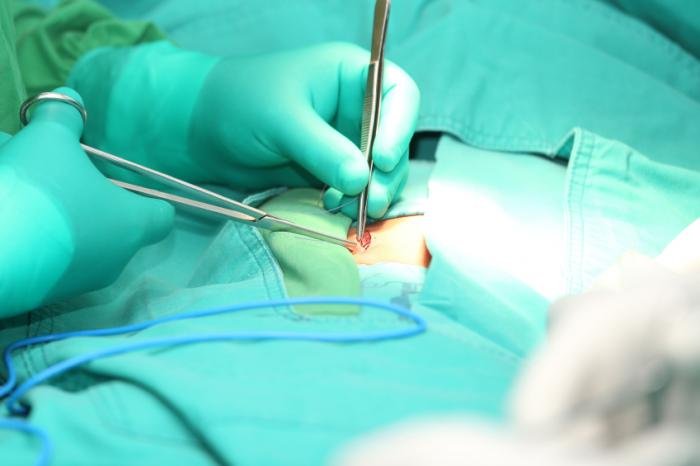Hernia
A hernia occurs when there is a weakness or hole in the muscular wall that usually keeps abdominal organs in place (the peritoneum).
This defect in the peritoneum allows organs and tissues to push through, or herniate, producing a bulge.
Hernias can commonly be found in the following areas:
• Groin - a femoral hernia creates a bulge just below the groin (more common in women); an inguinal hernia (more common in men) is a bulge in the groin that may reach the scrotum.
• Upper part of the stomach - a hiatal or hiatus hernia is caused by the upper part of the stomach pushing out of the abdominal cavity and into the chest cavity through an opening in the diaphragm.
• Belly button - a bulge in this region is produced by an umbilical hernia.
• Surgical scar - past abdominal surgery can lead to an incisional hernia through the scar.
Causes of Hernia
With the exception of an incisional hernia (a complication of abdominal surgery), in most cases, there is no obvious reason for a hernia to occur. The risk of hernia increases with age and occurs more commonly in men than in women.
A hernia can be congenital (present at birth) or develop in children who have a weakness in their abdominal wall.
Activities and medical problems that increase pressure on the abdominal wall can lead to a hernia. These include:
• Straining on the toilet (due to long-term constipation, for example)
• Persistent cough
• Cystic fibrosis
• Enlarged prostate
• Straining to urinate
• Being overweight or obese
• Abdominal fluid
• Lifting heavy items
• Peritoneal dialysis
• Poor nutrition
• Smoking
• Physical exertion
• Undescended testicles
Symptoms of Hernia
In many cases, a hernia is no more than a painless swelling that presents no problems and needs no immediate medical attention.
A hernia may, however, be the cause of discomfort and pain, with symptoms often becoming worse when standing, straining, or lifting heavy items. Most people who notice increasing swelling or soreness eventually see a doctor.
In some cases, a hernia needs immediate surgery, for instance, when part of the gut becomes obstructed or strangulated by an inguinal hernia.
Immediate medical attention should be sought if an inguinal hernia produces acute abdominal complaints such as:
• Pain
• Nausea
• Vomiting
The swelling, in these cases, is typically firm and tender and cannot be pushed back up into the abdomen.
A hiatal hernia can produce symptoms of acid reflux, such as heartburn, which is caused by stomach acid getting into the esophagus.
Tests and Diagnosis of Hernia
The diagnosis of a hernia is usually simple - the doctor will often be able to see it and feel it. While the doctor is feeling for the hernia, he may ask the patient to bend or move, or to cough, as this can enlarge the bulge.
To visualize the problem, the doctor may arrange an imaging test, such as an ultrasound scan or a CT (computerized tomography) scan.
Treatments for a Hernia
For a hernia without symptoms, the usual course of action is to watch and wait, but this can be risky for certain types of hernia, such as femoral hernias.
Within 2 years of a femoral hernia being diagnosed, 40 percent result in bowel strangulation.
There is no real consensus among doctors regarding the benefits of elective surgery (non-emergency surgery) for hernia repair in the case of an inguinal hernia without symptoms that can be pushed back into the abdomen.
Although surgical options depend on individual circumstances, including the location of the hernia, there are two main types of surgical intervention for hernia:
• Open surgery
• Laparoscopic operation (keyhole surgery)
Open surgical repair closes the hernia using sutures, mesh, or both, and the surgical wound in the skin is closed with sutures, staples, or surgical glue.
Laparoscopic repair is used for repeat operations to avoid previous scars, and while usually more expensive, is less likely to cause complications such as infection.
Surgical repair of a hernia guided by a laparoscope allows for the use of smaller incisions, enabling a faster recovery from the operation.



